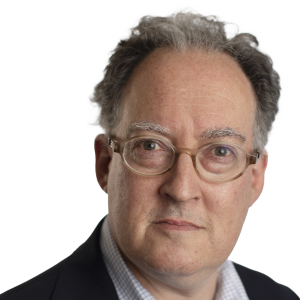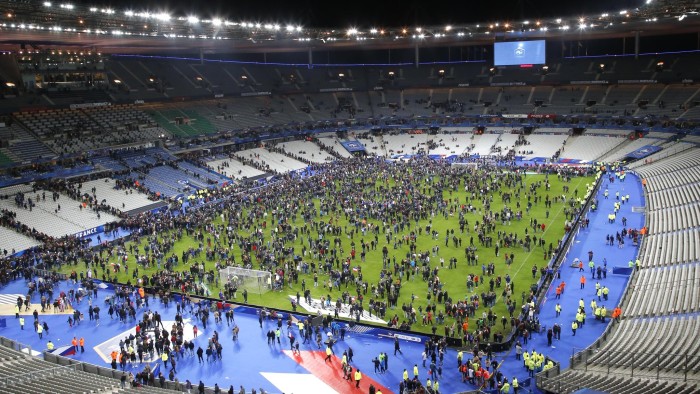Paris attacks: The global consequences


Roula Khalaf, Editor of the FT, selects her favourite stories in this weekly newsletter.
Every New Yorker and Londoner will instinctively understand what Parisians are going through this morning: a combination of shock, horror, disorientation and fear for the future.
Yet the memory of the terror attacks of 2001 in New York and 2005 in London also demonstrates the resilience of great cities. They can bounce back from acts of terror, with surprising speed and vigour. To say that terrorists will not “beat Paris” is not a statement of defiance. It is simply a statement of fact.
Paris is a city whose history, often violent and shocking, is ever present. There are memories of revolutions, massacres, wars and occupation everywhere — not just in museums, but in street names and in the very architecture of the city. Through it all, Paris has become a byword for beauty, serenity and creativity.
But while there can be no doubt that Paris will bounce back, it is also true that this attack comes at a particularly sensitive moment in the history of both France and Europe.
It was just 10 months ago that Paris was the victim of the murderous attacks at Charlie Hebdo magazine and on a Jewish supermarket that brought millions out on to the streets in defiant demonstration. But the death toll from these latest attacks is much higher. The fact that a second wave has come so soon after the Charlie Hebdo atrocity will also heighten the sense of insecurity.
The immediate political questions concern French involvement in the Middle East, as well as the impact of the attack on next month’s regional elections. The terrorists are reported to have shouted comments about the war in Syria. France launched its first air strikes on the militant jihadis of Isis in Syria in September, and has been involved in bombing raids on the group in Iraq for many months. It is highly unlikely that President François Hollande will respond to the terror attacks by calling off French involvement in the war on Isis. Indeed, in the short term, an intensification of military involvement is more likely.
The reaction of French voters in next month’s regional elections will be watched closely. Opinion polls were already suggesting that Marine Le Pen, leader of the far-right National Front, will win in the Nord-Pas-de-Calais region; her niece, Marion Maréchal-Le Pen, has also topped some polls in the Provence region in the south. The National Front, which has a long history of hostility to Muslim immigration and which has also argued for the restoration of frontier controls, may well benefit in the aftermath of the attacks. Some of its arguments were, in any case, already seeping into the discourse of the traditional centre-right parties.
Paris witness
Simon Kuper in the Stade de France

Tonight my family will probably be OK in Paris. But after that?
Read more
The terror attacks in Paris also come at a time when Europe is in the midst of a “migrant crisis”. With Germany set to receive more than 1m refugees this year — most of them from the war-torn Middle East — the domestic pressure on Angela Merkel, the German chancellor, to close her country’s borders to new migrants was already mounting. Even before the Paris attacks, Sweden — which has taken more migrants per head than any other EU country — had announced a partial closure of its borders to new refugees, albeit as a temporary measure. In the aftermath of Paris, Ms Merkel will surely be tempted to take a similar measure, easing the political and social pressure on her government. But she will also be aware of the dangerous knock-on effects such an action could have on Balkan countries further down the migrant route.
The precise origins of the terrorists (which are not yet known as I write on Saturday morning) will certainly change the post-attack debate. However, if and when the assumed connection to Islamist terror movements is fleshed out, the debate over western policy in the Middle East will intensify but will not necessarily be clarified.
One possible consequence would be for western policy to focus even more tightly on the defeat of the jihadis of Isis while playing down subsidiary goals, such as the removal of President Bashar al-Assad of Syria. But France has been at the forefront of those countries arguing that Mr Assad is at the centre of the problem of Syria. A complete reversal of the anti-Assad policy seems unlikely in the coming weeks.
What is more likely is that policy will evolve in the coming months, as the impact, lessons and sheer shock of the Paris terror attacks is absorbed.
Comments